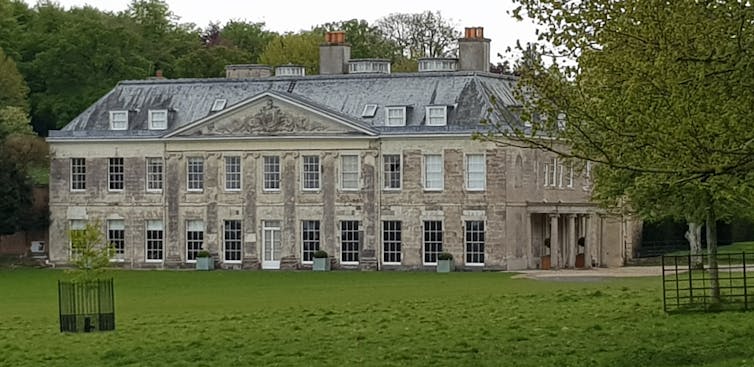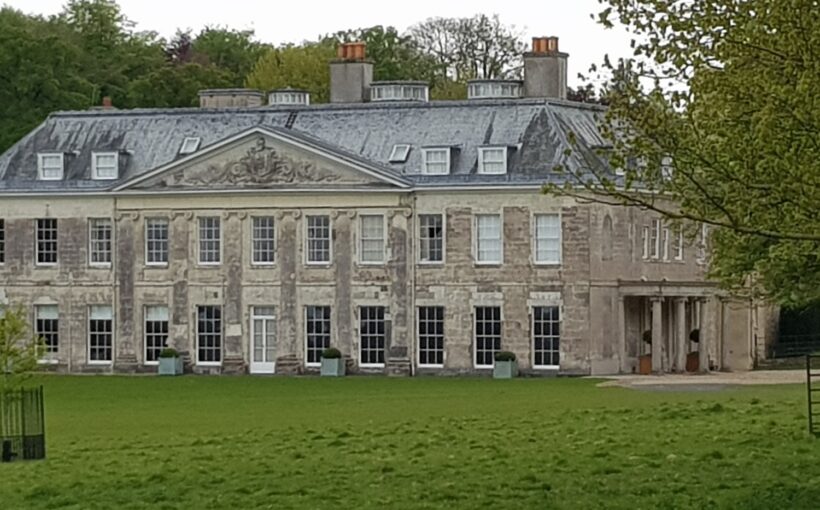“Reparations have been paid for other wrongs and obviously far more quickly, far more speedily than reparations for what I consider the greatest atrocity and crime in the history of mankind: transatlantic chattel slavery.” So noted the eminent Jamaican international jurist Judge Patrick Robinson, when launching the 115-page Brattle Report in June 2023.
The economic consultancy, The Brattle Group, was asked to draw up a report estimating the scale of reparations that should be paid for the chattel trade between 1510 to 1870, covering 31 countries that engaged in transatlantic slavery. This would include compensation for loss of life and liberty, uncompensated labour, personal injury, mental pain and anguish and gender-based violence.
The Brattle Report estimated that the UK – which was the biggest slave trading nation up to 1807 and did not abolish slave ownership in the empire until 1834 – should pay a reparations bill of £18.5 trillion. To put that into context, the estimated annual GDP for the UK for 2023 is about £2.5 trillion and the entire worth of the UK – its land, infrastructure and everything in it was estimated by the Office for National Statistics at £10.7 trillion in 2020.
But then centuries of value derived from the trade in human beings produced for Britain an equally unimaginable sum. The British government borrowed £20 million in 1833 to compensate slave owners, which amounted to a massive 40% of the Treasury’s annual income or about 5% of British GDP. According to the Treasury, the loan was only finally paid off in 2015.
The wealth created by the slave trade and the plantations continues to shape British society to this day and, in some cases, remains in the hands of families whose ancestors were involved in buying and selling slaves and running enterprises based on slave labour. One example is the Drax family of the Charborough Estate in Dorset, which is now owned by Conservative MP, Richard Drax.
Drax family legacy
For the past three years I have been researching – and have just completed – an unauthorised history of the Drax family. The family appears to be unique in having an unbroken history of owning sugar plantations in the Caribbean from their inception until the present day.
Their ancestor James Drax (c.1609-1662) was one of the first settlers in Barbados in 1627 and is credited with inventing the British sugar industry in the 1630s. Around 1640 he developed the integrated sugar plantation. It was a highly efficient industrial process, but required a coordinated workforce working from before sunrise to sunset.
James Drax was the first – or one of the first – planters in the British empire to move to a workforce of enslaved Africans where the children of slaves were held in perpetuity. His descendant – the Conservative MP for South Dorset, Richard Grosvenor Plunkett-Ernle-Erle-Drax, (who prefers to be known as Richard Drax) heads the family that owns the vast Charborough Estate and the Drax Hall Plantation in Barbados.
Although he is a public figure, Richard Drax and his family are very private, not least about their wealth which is locked into a number of trusts. As head of the family, the MP lives in the 17th-century grade 1 listed Charborough House with its 1,500 acres of parkland all tucked away behind the three miles of the “Great Wall of Dorset”.

Writing for The Observer and Sunday Mirror in 2020, I and my co-writer revealed that he is the wealthiest landowner in the House of Commons. After detailed research, we were able to estimate that the MP and his family owned at least 15,000 acres of farmland, heathland and woodland in Dorset plus a farming estate and grouse moor in Yorkshire.
We calculated that his 125-plus properties and 23.5 square miles of Dorset land are worth at least £150 million. We also revealed that he had personally inherited the Drax Hall plantation in Barbados, which was valued in 2020 as worth £4.7 million. In April 2023 they cropped sugar there, as they had done since the 1630s.
Richard Drax has resisted engaging with the reparation debate. His “slavery was wrong” comments have not sufficed for the ancestors of people enslaved in Barbados. In 2020 when we raised the question of slavery and his ancestors with him, he told us: “I am keenly aware of the slave trade in the West Indies, and the role my very distant ancestor played in it is deeply, deeply regrettable, but no one can be held responsible today for what happened many hundreds of years ago. This is a part of the nation’s history, from which we must all learn.”
The distinguished Barbadian historian of slavery, Sir Hilary Beckles (who is also the chair of the Caribbean Reparations Commission representing 20 countries) told the Sunday Mirror: “It is no answer for Richard Drax to say it has nothing to do with him when he is the owner and the inheritor. They should pay reparations.”
Mounting pressure for reparations
In the three years since I first wrote about Richard Drax MP, the call for reparations has gotten much louder. Globally, Drax has come to symbolise those whose families benefited from slavery but rebuff formal apologies and paying reparations.
Pressure has grown on him and in October 2022 he flew to Barbados to meet with the country’s prime minister, Mia Mottley. The Barbados government believes that – as a descendant of a founder plantation owner, a British MP – his wealth and his attitude towards responsibility for reparations symbolises everything that was wrong with the way Britain treated Barbados and the colonies.
In the meeting between Drax and Mia Mottley, he was offered two options, one a package of reparations including all or a substantial part of Drax Hall. If he refused, Mia Mottley said they could take legal action over the issue. Drax himself has declined to comment and his office didn’t return attempts to contact him again this week. Meanwhile, other families such as the Trevelyans and the Gladstones from the Heirs of Slavery group have come to represent those who recognise where their family wealth came from and feel the need to apologise and make some kind of reparations payment.
The Brattle report is an important waymark in making the case for reparations, as it is described as the most comprehensive financial analysis of transatlantic slavery. It estimates that the 31 enslaving countries procured 801.58 million life years of free labour on which they were able to prosper.
The momentum for reparations grows. Judge Robinson says that the UK government needs change from its position of refusing to apologise. “I believe that the United Kingdom will not be able to resist this movement towards the payment of reparations: it is required by history and it is required by law.”
![]()
Paul Lashmar is a member of the Labour Party



